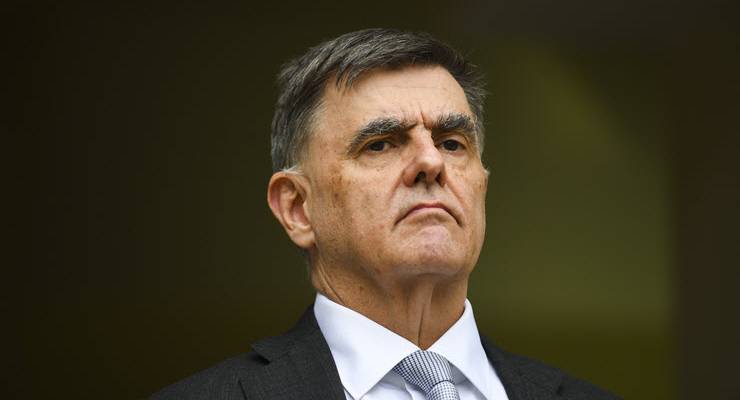
The pubs reopen, while some airlines plan an ambitious return. But like most days during the pandemic, the news is mostly bad. In fact, according to the World Health Organisation (WHO), the coronavirus might never go away.
The pub opens… but not really
Yesterday, NSW announced that pubs and clubs, along with cafes and restaurants, would also be allowed to reopen, in a limited capacity, from tomorrow. And by limited, we mean, they won’t be anything like pubs as we know them.
Like restaurants, they’ll have to adhere to social distancing rules, and like restaurants, they’ll only be allowed to admit 10 patrons at a time, and only be able to provide table service alcohol with a meal. Pubs will also open, with restrictions, in the Northern Territory and Queensland.
But while venues have a green light, don’t expect regular dining anytime soon. Many will remain shut, because it just isn’t commercially viable to comply with the current restrictions.
And now for some bad news
As usual, there’s plenty of it. The WHO’s Mike Ryan floated the horrifying thought that COVID-19 may never be eradicated. Instead, he suggested it could become an endemic disease, like HIV, that sticks around forever. Of course, we’re still hanging out for a vaccine, but there’s good historical evidence that maybe we won’t get one.
And in a climate of disinformation, what happens if a vaccine does emerge, and half the population refuses to get it? That’s a scenario floated by The New York Times tech reporter Kevin Roose, who suggests that if we do get a vaccine, public health bodies could be in for a difficult information war against a resurgent, mobilised anti-vaxxer movement.
The world’s most expensive travel bill
A Senate inquiry yesterday revealed that Nev Power, the former mining executive running Scott Morrison’s COVID-19 Co-ordination Commission, was getting $267,345 for six months of his trouble (it was initially said to be $500,000). Just money for travel and expenses apparently.
The Commission, which is intended to assist Australia’s economic recovery from the pandemic, has faced criticism over its ties to oil and gas, a lack of transparency, and a membership drawn largely from the top of the corporate ladder.
Airlines start up again
As restrictions start to ease in Europe and Australia, a few airlines are getting off the ground. From May 21, you’ll be able to fly from Sydney or Melbourne to London on Emirates or Etihad — travel restrictions aside. Over in Europe, budget carrier Ryanair, notorious for cramming in passengers like cattle, wants to restart 40% of its flights by July. To combat risks of infection, passengers will have to take temperature tests, wear face masks, and ask permission to use the toilet.
If planes aren’t your jam, the cruise ship industry has, rather boldly, announced it’ll be taking advantage of the proposed trans-Tasman bubble from October. None of this means much, since Chief Medical Officers Brendan Murphy yesterday said he couldn’t foresee international travel returning for a long time.
In other aviation news, the Queensland government announced it was bidding to buy Virgin Australia yesterday, to howls of outrage from Peter Dutton and News Corp.








From this distance, the US appears to be infested by religious followers, prey to false prophets. Whereas the current US president appears to seek mob followers by indulging populist nonsense, previous US presidents have been able to persuade the public that everyone’s sons should be conscripted to fight in a foreign war. Hopefully future presidents would similarly foresee and head off fearmongering against universal vaccination.
From this distance, the US appears to be infested by religious followers, prey to false prophets. Whereas the current US president appears to seek mob followers by indulging populist nonsense, previous US presidents have been able to persuade the public that everyone’s sons should be conscripted to fight in a foreign war. Hopefully future presidents would similarly foresee and head off fearmongering against universal vaccination.
“Nev Power [is] getting $267,345 for six months of his trouble… Just money for travel and expenses apparently.”
Does that mean the payment is not subject to income tax? So if it was net income instead, and was taxed at the top rate, it would be not far off $500,000 before tax? Nev and the government are having a laugh, right?
Classify the anti-vaxxers in the Proof of Darwin Evolution. Although they do make it harder to eradicate a particular ill (smallpox has been eradicated by high levels of vaccination), due to the mortality rate it is likely the number of anti-vaxxers will be reduced in an unnatural manner!
Naaaa..the anti-vaxxers can afford to live parasitically off the herd immunity of the majority people who get vaccinated. It’s a bit like organized crime makes its living off the necessity of the rule of law .
Thanks for the heads up that Emirates will be flying to London by June – mid summer Norther Hemisphere, what could be finer?
Wow, only $2034 return! Still less than 30 years ago!
So what?
The mortality risk of COVID-19 for healthy people under 70 years is by far exaggerated, as the latest scientific research of Heinsberg Germany confirms. I rather get infected to create my own anti-bodies instead of waiting forever for a vaccine under economic and traveling lock-down.
Vaccines can have amplifiers with severe side effects like the one for swine flue! Without verified content of what is in the vaccine, I won’t use it. Transparency is the key to vaccination, not secrecy, and mandatory enforcement. As human rights, we can decide what we do with our bodies.
We live permanently with many viruses and bacteria. The most important counter measure is a healthy life style: Avoid alcohol, smoking, drugs, junk food, excessive sugar, and keep moving and enjoying fresh air.
Worry less and stay happy.
https://translate.google.com/translate?hl=en&sl=de&tl=en&u=https%3A%2F%2Fwww.rosenfluh.ch%2Fdie-lehren-aus-heinsberg&sandbox=1